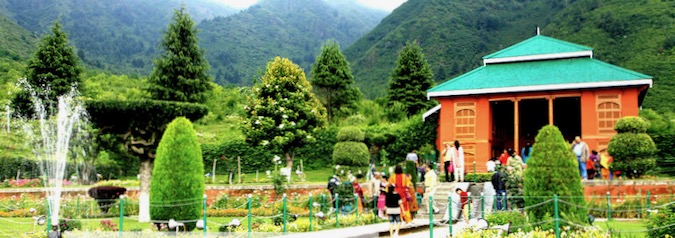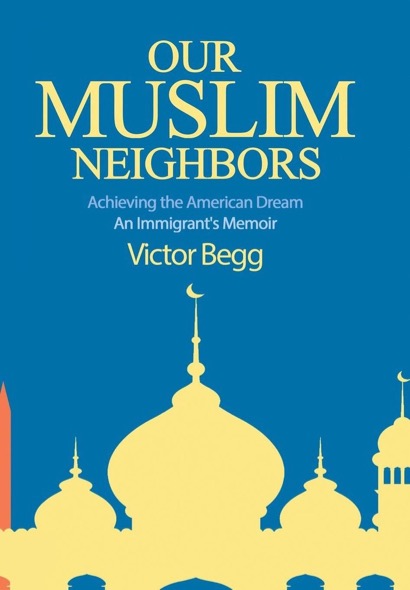.
By VICTOR BEGG
Author of Our Muslim Neighbors
When Americans hear the news that Kashmir is the flashpoint of another deadly conflict between Pakistan and India, they shake their heads wearily and move on to the next news story—that is, if Americans pay attention at all. For most people, the name Kashmir is synonymous with endless conflict.
What breaks my heart is that this region is one of the most beautiful spots on this planet—and this deeply entrenched conflict really is a legacy of the British Empire’s “divide and rule” policy. The paradise of Kashmir is burning because Indian and Pakistani leaders are willing to die, claiming their ownership to this scenic beauty. Kashmiris themselves, mostly Muslim, are fiercely independent and don’t care for either side. After all, India and Pakistan both have pursued such brutal policies in the region that it is hard to find peace there—and the potential for prized tourism has never been realized. This is a tragedy on many levels.
I don’t intend to try to sort out the decades of back-and-forth arguments over abuse, oppression and violations. What I want to convey to readers is that this truly is a corner of the earth that I hope, one day, they will place on their bucket list of global travels.
A Muslim born in India, I grew up in Hyderabad, about 1,200 miles from Kashmir. I first saw this legendary region in the summer of 1967, when I had a chance to attend a medical school in Kashmir. I began my long, slow journey to the beautiful Kashmiri city of Srinagar from Pathankot, an Indian town in the foothills of the Himalayas. My final destination required a challenging mountainous journey—especially scary because earlier that same day, another bus had careened off a cliff. Far below, we could see it like an upside-down toy!
This was such a dangerous trip that there was no question of driving in the dark—so we stopped for the night and I slept on a cot under the starry sky.
Anxiety kept me awake most of that night. Not only were there the obvious natural dangers, but I was young and worried about my own future. As I lay looking up at the stars, I heard devotional hymns and bells from a shrine farther up in the mountains that lulled me to sleep. I woke up to the sound of chirping birds. It was a memorable prelude to what I experienced the next day.
After driving through a poorly lit two-mile-long tunnel, we emerged into a vast, lush valley surrounding the mirror like Dal Lake reflecting snow-capped mountains. As a popular tourist destination, it was known as “the jewel in the crown of Kashmir.”
For centuries, India’s elite escaped the summer heat by packing up their horse-drawn carriages, and sometimes their elephants, and moving to Kashmir for a few months.
The 17th-century Mughal Emperor Jahangir loved this place. Everyone knows the story of India’s Taj Mahal, built over many years as an act of love. But the shores of Dal Lake in Kashmir boast another world heritage site that was born of love. Jahangir devoted enormous resources to the construction of formal gardens to honor his beloved wife Nur Jahan. These gardens made of terraced pools, waterfalls and elaborate landscaping are known as Shalimar, which means “abode of love” in Sanskrit.
UNESCO sums up the beauty of the gardens this way: “The outstanding quality of Shalimar Bagh lies in the synthesis of its landscape and architectural features. The wider setting of the rural agricultural landscape, the rice fields and hamlets, the historic canal that links the garden to Dal Lake, and the mountain backdrop, all contribute to the significance of Shalimar Bagh.”
Jahangir absolutely loved this place. When he finished his gardens, he had an inscription carved in stone from the Sufi poet Amir Kushrow: “If there is a paradise on earth, it is here! It is here! It is here!”
UNESCO says one of the remarkable details of the architecture is that it was deliberately downplayed so that visitors’ attention was focused not on human construction—but on the natural beauty of the region. In fact, no great palaces were built in Kashmir, compared with the Mughal landmarks in northern India. These Muslim rulers were environmentalists, appreciating God’s artistry in nature.
When I hear “Kashmir”—that’s what I see in my mind’s eye. And, I think of the fragrant saffron fields, which legend holds were introduced by Sufis. I think of 100-foot-tall chinar trees with their wide, shady canopies. I remember the houseboats, anchored in Dal Lake, and the gondola-like boats, called shikhara, slowly moving across the lake to carry the tourists and honeymooners to the houseboats anchored in Dal Lake. I had seen these Kashmiri sights on Indian movie screens, but the reality was breathtaking!
I never became a doctor. Shortly after I arrived, Indian forces established a harsh curfew that closed everything down for many months. Finally, I gave up and left Kashmir behind. I wound up coming to America and becoming an entrepreneur. Now, I am an author promoting peaceful understanding between religious and cultural groups wherever I travel.
This is why my heart breaks any time fresh violence arises between the two giant powers poised around Kashmir like great lions, ready to pounce at any provocation.
I want to reach out and grab the leaders of both nations and give them a good shaking. I want to tell them: “Wake up! Why can’t grown-up, educated Indians and Pakistanis finally reject this British time bomb that was left behind when the Raj crumbled?”
There is so much of God’s beauty still cradled in Kashmir. Why can’t the armies leave and let this lush valley once again become a global mecca for love and beauty?
VICTOR GHALIB BEGG is a nationally known peace activist, a Muslim born in India, and the author of the 2019 memoir, Our Muslim Neighbors.





Victor – what a beautiful piece. Too many Westerners know too little about this part of the world, which plays an outsized role in Western lives and history.